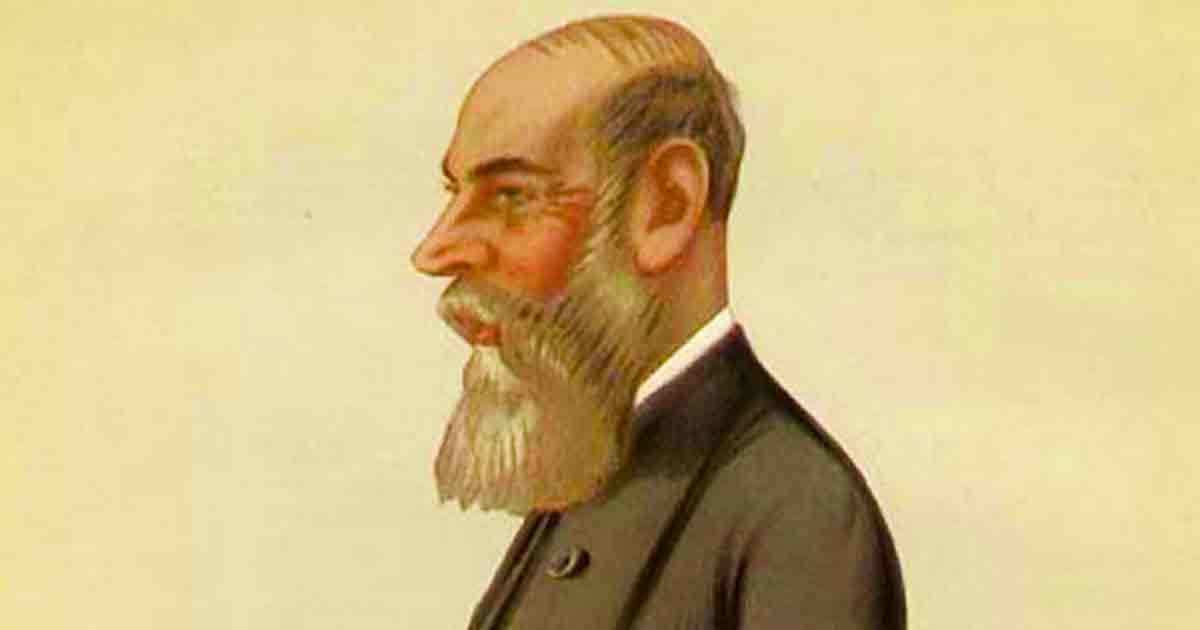Captain Boycott's Abuse of Irish Farmers Sparked the Term “Boycott”
Certain words emerge from peculiar circumstances, leaving an indelible mark on language and society. The term “boycott” is one such example, as it carries a fascinating origin story that intertwines with the plight of Irish farmers and the oppressive actions of one man, shedding light on the power of collective action and linguistic evolution.
The Land War, Captain Boycott's Reign of Tyranny and the Boycott
The term ‘boycott’ has its origins during the 1800s in Ireland. At the heart of this conflict were Irish tenant farmers battling against unfair land practices, rent hikes and evictions imposed by absentee landlords and their agents during the Land War which took place between 1879 and 1882. One such agent, Captain Charles Cunningham Boycott, became a central figure in this saga of oppression.
In 1880, the tenants of County Mayo found themselves at the mercy of Captain Boycott, who served as the agent for Lord Erne, an absentee landlord. Boycott's management of the estate was marked by ruthless evictions, exorbitant rents and a general disregard for the welfare of the local farmers.
Faced with Captain Boycott's tyranny, the Irish farmers devised a daring strategy to resist his unjust demands. Led by prominent members of the Irish Land League, they initiated a coordinated campaign of nonviolent resistance, refusing to work his land, engage in trade with him or to provide him with any form of service, including serving him in local shops or working his land.
The idea came from a speech given by the Irish nationalist Charles Stewart Parnell who called for workers to punish unjust land agents by “isolating him from the rest of the country, as if he were the leper.” This organized effort effectively isolated Boycott from the community, rendering him unable to carry out his duties.
- By Giving Up Sugar in Their Tea, British Women Helped End Slavery
- Calling Someone a Luddite Isn't Actually an Insult

Evicted (1890) Elizabeth Thompson Butler, depiction of Irish social distress during the Land War in the 19th century. (Public Domain)
The Origin of “Boycott”: How Oppression Influenced the English Language
This collective action reverberated far beyond the borders of County Mayo, garnering media attention for the innovative protest methods devised by the Irish farmers. The eponymous term quickly entered the public consciousness, with journalists and commentators coining the term “boycott” to describe this form of social and economic ostracism.
The repercussions of the boycott against Captain Boycott were profound. His name became synonymous with organized resistance, and "boycott" became a powerful tool for social and political change worldwide. According to the Cambridge Dictionary, “to boycott” means “to refuse to buy a product or take part in an activity as a way of expressing strong disapproval.”
The story of Captain Boycott and the Irish farmers serves as a reminder of the transformative potential of collective action. The actions of Irish farmers inspired a word that would come to symbolize the power of solidarity and the refusal to accept injustice—a legacy that continues to resonate to this day.
Top image: Caricature of Charles Cunningham Boycott, published in Vanity Fair magazine in January 1881. Source: Public domain


















Comments
The narrative of relatively modern Irish history is one of Irish peasantry pitted against British imperialism. However, the peasantry were mere pawns.
British imperialism was a tool of Satanic forces. However, social-justice-championing Jesuit Catholicism, which took strong root in rural Ireland, was another tool of the same Satanic forces. Such Satanic forces regularly control both apparently opposing sides which are presented to a naïve public as the only options.
Thus, the idea of a "boycott" bringing about lasting social change and justice is equally naïve. Divide and conquer tactics require division. Division is created, then capitalised upon.
The reaction to injustice can then be channelled off to set up situations for ongoing control and further injustice. That is the true legacy that continues to resonate to this day, where collective action is routinely corralled into collecting around forces which are not what they seem.
Ultimately, the Satanic forces behind social injustice know there shall be resistance, so they ensure that such resistance is never given free reign, just an appearance of it.